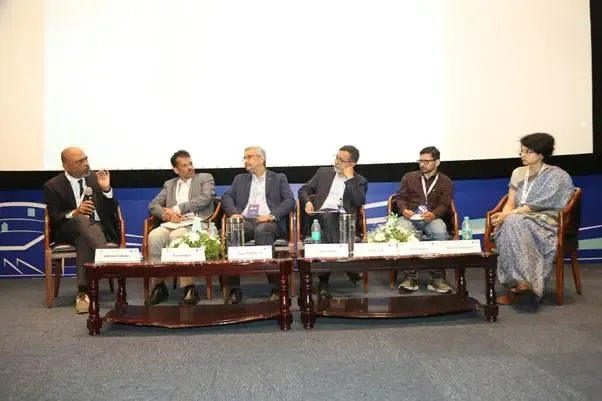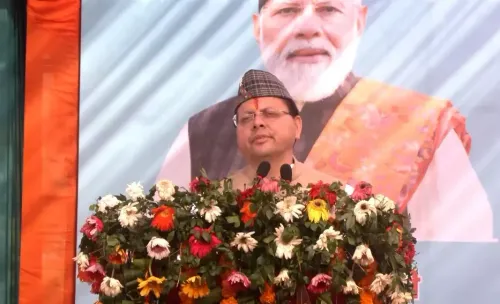How Can Granular Data Sustain Key Policy Reforms?

Synopsis
Key Takeaways
- Granular data is crucial for effective policy reforms.
- The ASUSE and CAPEX surveys provide important insights into private sector activities.
- MoSPI's commitment to data integration enhances understanding of economic trends.
- Innovations in data dissemination improve accessibility for users.
- Collaboration with research institutions strengthens statistical systems.
New Delhi, May 28 (NationPress) The government’s commitment to policy reforms is powered by the vitality of granular data, according to Chief Economic Advisor (CEA) Dr V. Anantha Nageswaran. He praised the Ministry of Statistics and Programme Implementation for its dedication to improving data granularity and highlighted the insights gained from recently published reports on the ASUSE and CAPEX investment surveys.
The ASUSE and the private sector CAPEX Investment Intention Survey provide extensive coverage, offering a realistic overview of activities in India’s private sector.
Significantly, he pointed out the strategic importance of granular data, asserting that “one way to boost the chances for favorable policy changes is to continually focus on social and economic trends as precisely as possible, from the national level down to states, districts, and blocks.”
During a ‘Data Users Conference’ at the Indian School of Business in Hyderabad, Nageswaran also recognized the ministry’s initiatives to merge various administrative datasets (GST, MCA21) and the utilization of AI tools for generating district-specific insights.
Dr Saurabh Garg, Secretary of MoSPI, reiterated the ministry’s core vision of ‘Data for Development.’
He highlighted MoSPI’s position as the largest primary data collector in India and potentially globally, with survey sample sizes ranging from 100,000 to 500,000 units.
He also mentioned several innovations, including the monthly release of the Periodic Labour Force Survey (PLFS) for both rural and urban sectors, the forward-looking CAPEX Investment Intentions Survey, which provides insights into future private sector investment trends, and a pilot project on the Annual Survey of Service Sector Enterprises (ASSSE).
A primary focus is on enhancing data dissemination through a revamped MoSPI portal that features improved access, APIs, visualizations, and user-friendly microdata tools.
The presentation also emphasized ongoing partnerships with research institutions, an active internship program, and initiatives to strengthen state-level statistical systems, especially through more granular, district-level data on economic activities such as DDP and industrial performance indices.
Professor Madan M Pillutla, Dean of the Indian School of Business, underscored the importance of data collection and the tradition of reliability and regularity that has been maintained.









